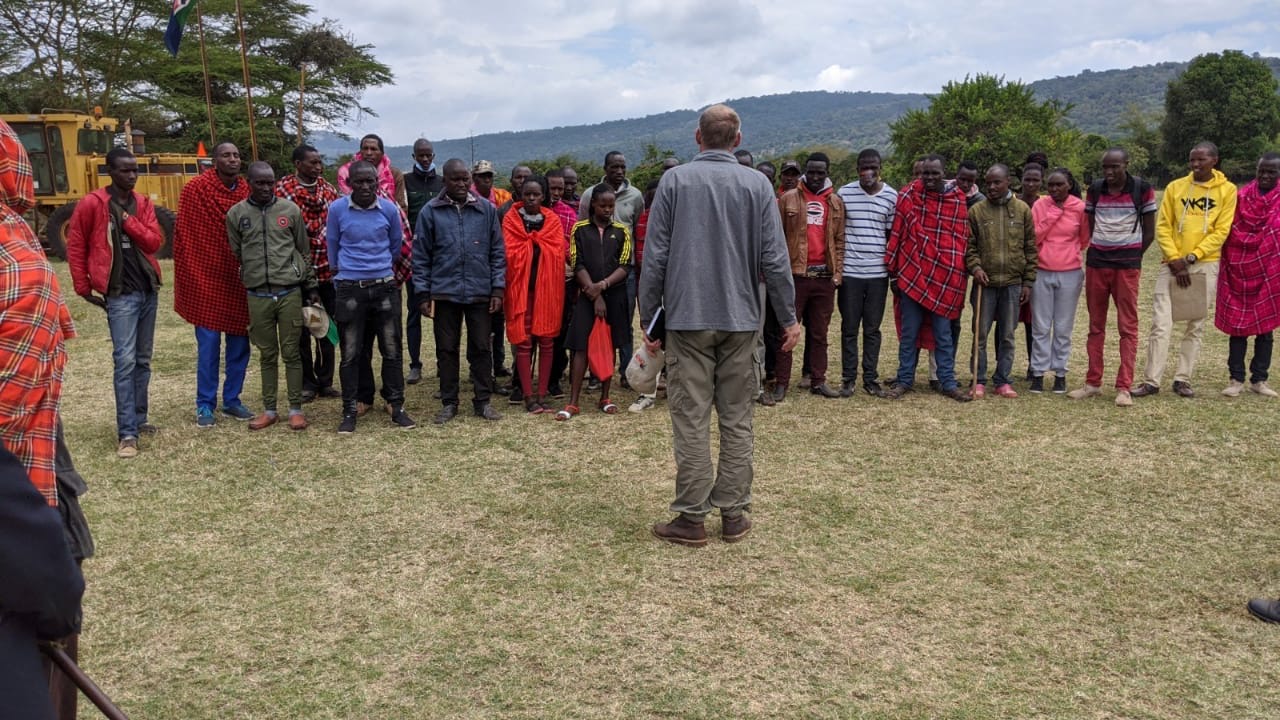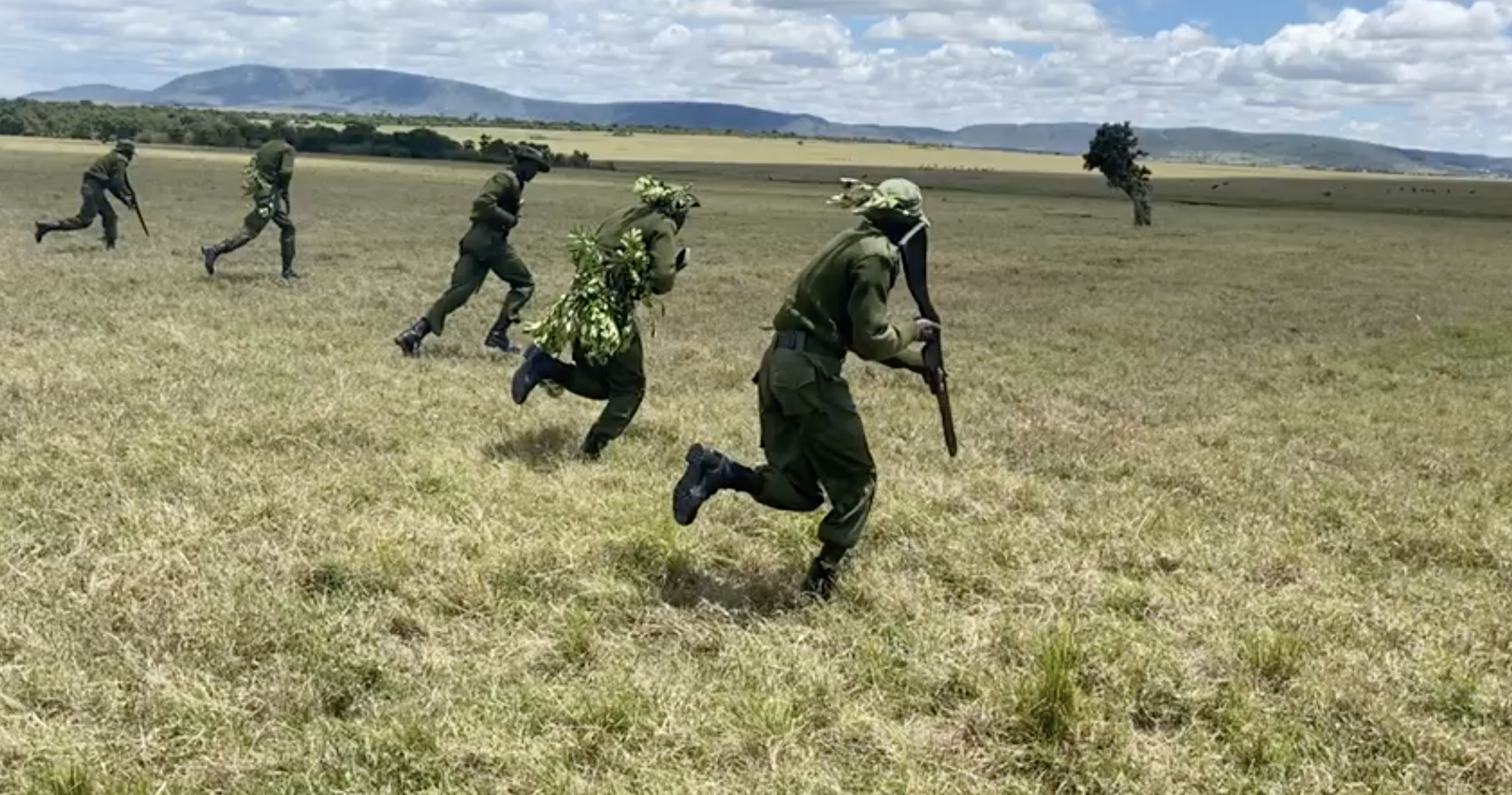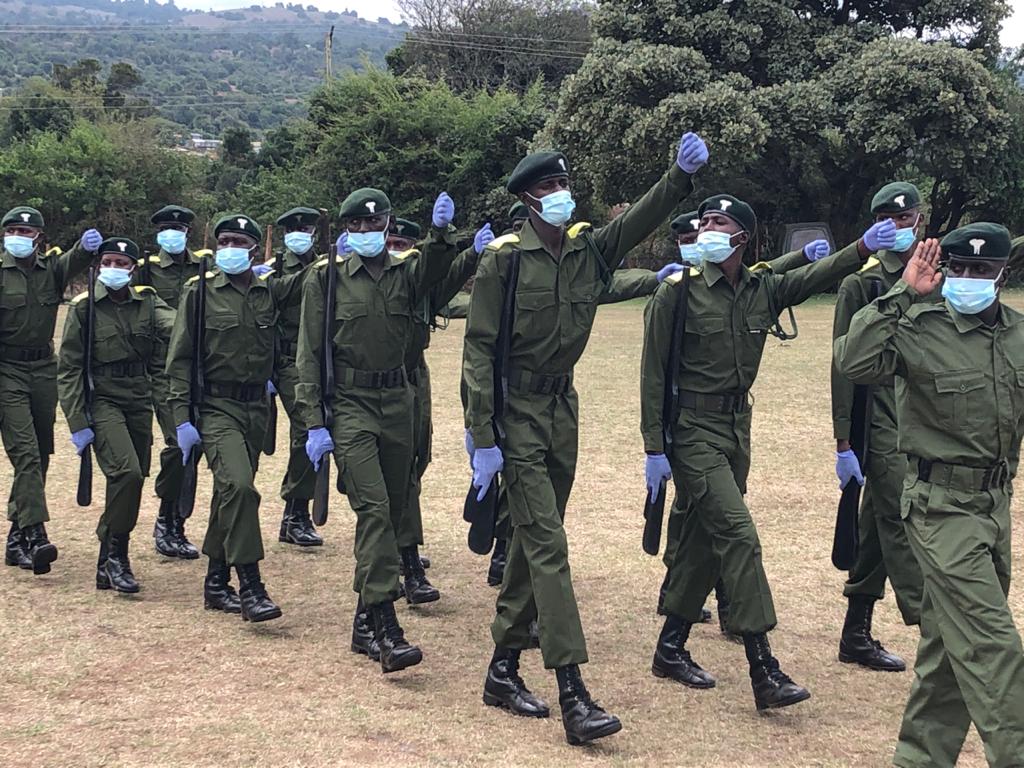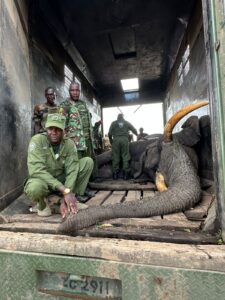 Mara Elephant Project (MEP) was established in 2011 with the mission of protecting elephants to conserve the Greater Mara Ecosystem (GME). MEP concentrates on the protection of elephants outside of protected areas in the Maasai Mara and by doing so, we help protect not only wildlife, but communities and habitat in the Maasai Mara in Kenya. Our approach is to monitor, evaluate and protect elephants in collaboration with key partners in the region. The MEP Method is using boots on the ground rangers, applied research and a collaborative approach to help us work towards the goal of maintaining a harmonic balance between wildlife, communities and habitat and move from conflict to co-existence. Originally established to focus on combatting elephant poaching, MEP was ahead of its time by also understanding human-elephant conflict and habitat loss would be the long-term threat.
Mara Elephant Project (MEP) was established in 2011 with the mission of protecting elephants to conserve the Greater Mara Ecosystem (GME). MEP concentrates on the protection of elephants outside of protected areas in the Maasai Mara and by doing so, we help protect not only wildlife, but communities and habitat in the Maasai Mara in Kenya. Our approach is to monitor, evaluate and protect elephants in collaboration with key partners in the region. The MEP Method is using boots on the ground rangers, applied research and a collaborative approach to help us work towards the goal of maintaining a harmonic balance between wildlife, communities and habitat and move from conflict to co-existence. Originally established to focus on combatting elephant poaching, MEP was ahead of its time by also understanding human-elephant conflict and habitat loss would be the long-term threat.
The Loita Plains area (3,000 km2; 741,316 acres) in the GME stretches into the Southern Rift Valley in Kenya, which forms an important link for elephants between the GME and the Shompole and Kajiado ecosystems through the Sand River corridor. The Loita Plains also includes the Loita Forest which is 600 km2 (over 148,260 acres) of pristine forest that is an important refuge for elephants. Though Kenya’s largest rivers originate in the Aberdares, Mt. Kenya and the Mau Forest Complex, smaller forests such as Loita are key to the provision of water year-round for wildlife and communities.
Mara Elephant Project’s Maasai rangers are at the forefront of anti-poaching operations, human-elephant conflict mitigation efforts and stopping deforestation through boots on the ground initiatives. MEP rangers live out in the field for up to two-months at a time in mobile camps. Our rangers are the backbone of our organization and over time their presence in an area increases the protection for wildlife, communities and habitat. MEP, with support from funders, already deploys a ranger unit in the Loita Forest that is tasked with protecting wildlife from poaching, communities from conflict and the forest from illegal habitat destruction activities such as logging and charcoal production. From 2018 to 2020, MEP has focused on expanding operations in key forest areas of the Mara ecosystem. We now have two permanent ranger units in the Mau Forest; in the Loita Forest we deployed a permanent ranger unit and in the Nyakweri Forest we’ve deployed a rapid response unit that is combatting poaching, habitat destruction activities and mitigating conflict. This has all resulted in a record breaking 2019 when MEP rangers alongside government partners removed 231 bushmeat snares, confiscated 82 kg of illegally poached bushmeat, 21,738 illegally logged posts, arrested 46 people for illegal logging or charcoal production and destroyed 246 kilns and 221 bags of charcoal in key forest areas of the Mara ecosystem.
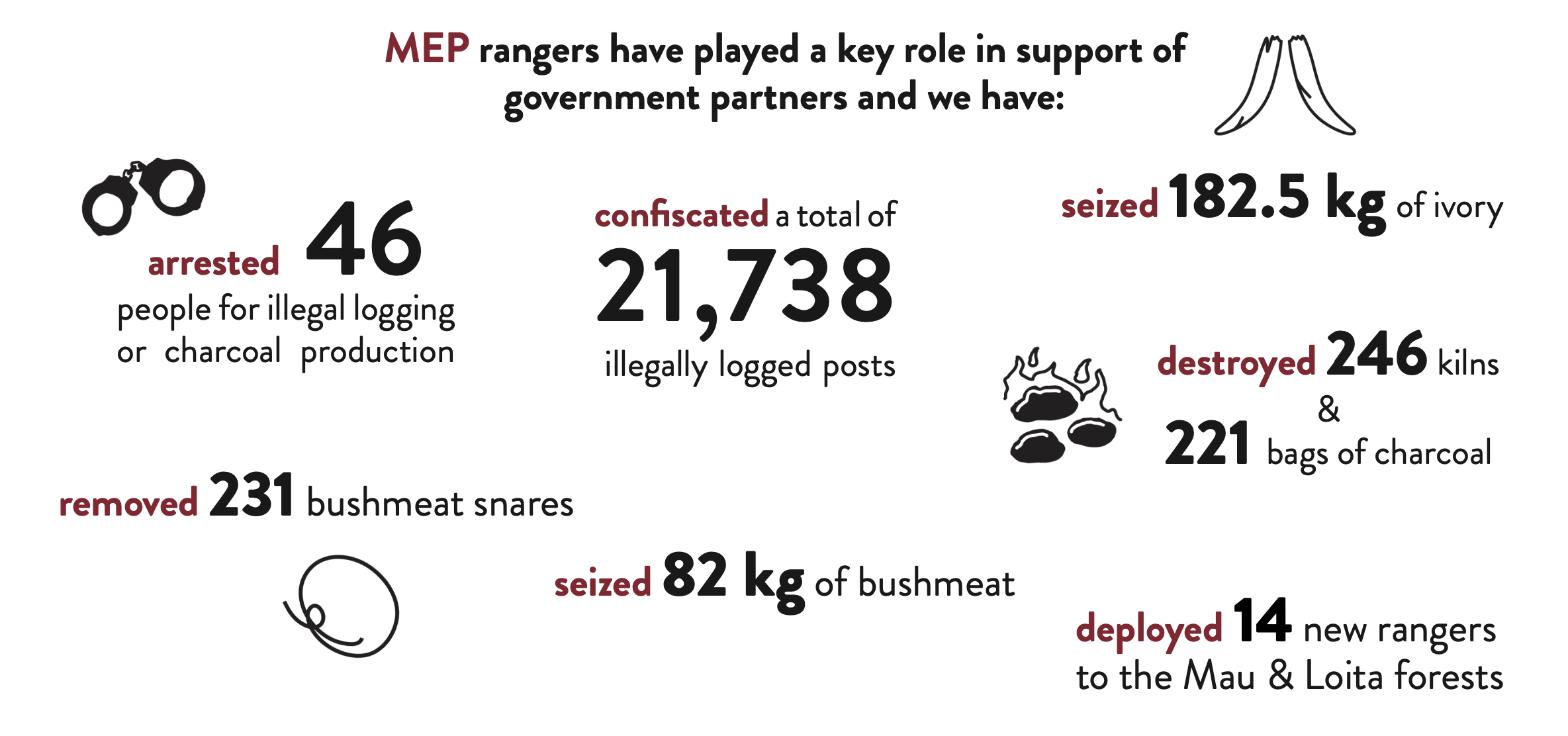
MEP also has a vast intelligence network that has been at the center of many arrests and seizures. Our anti-poaching patrols and intelligence gathering raises the opportunity cost for poachers and increases security for not only elephants but other wildlife. Since 2012, MEP alongside government partners has arrested 373 total ivory and bushmeat poachers which has resulted in the seizure of 1,676.5 kilograms of ivory. This success continues into 2020 as these activities continue to increase. Where MEP rangers have a presence, elephant protection improves. We are proud to report that the Percentage of Illegally Killed Elephants (PIKE) decreased from 83% in 2012 to 24% in 2019. The total number of poached elephants decreased from 96 in 2012 to 3 in 2019. While these critical areas of the Mara ecosystem now have additional protection, there are others that are in need of a permanent ranger presence and none more so than the Loita Plains.

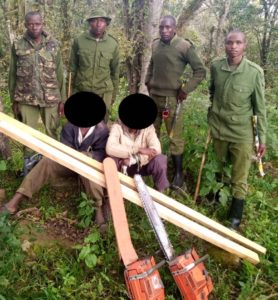 MEP’s rapid response unit has been on the ground in this area responding to conflict, poaching and habitat destruction in 2020. Based on MEP intelligence and observations on the ground, this area has poaching activity and escalating conflict, illegal logging and charcoal production. The northern portion of the Loita Plains, an area called Naroosura, is set to be subdivided, which is attributing to rising tensions between wildlife and communities. In June 2020, rangers responded to nine total conflict incidents alone just in this area and a young man was killed by an elephant during a conflict incident. In 2020 through October 1, MEP rangers alongside government partners have addressed the poaching in the area by arresting one ivory poaching suspect with 6.7 kg of ivory and removing two bushmeat snares. They have deterred habitat destruction activities by confiscating over 10,000 illegally logged posts, timbers or trees, destroying 14 kilns and arresting 15 people for illegal logging or charcoal production.
MEP’s rapid response unit has been on the ground in this area responding to conflict, poaching and habitat destruction in 2020. Based on MEP intelligence and observations on the ground, this area has poaching activity and escalating conflict, illegal logging and charcoal production. The northern portion of the Loita Plains, an area called Naroosura, is set to be subdivided, which is attributing to rising tensions between wildlife and communities. In June 2020, rangers responded to nine total conflict incidents alone just in this area and a young man was killed by an elephant during a conflict incident. In 2020 through October 1, MEP rangers alongside government partners have addressed the poaching in the area by arresting one ivory poaching suspect with 6.7 kg of ivory and removing two bushmeat snares. They have deterred habitat destruction activities by confiscating over 10,000 illegally logged posts, timbers or trees, destroying 14 kilns and arresting 15 people for illegal logging or charcoal production.
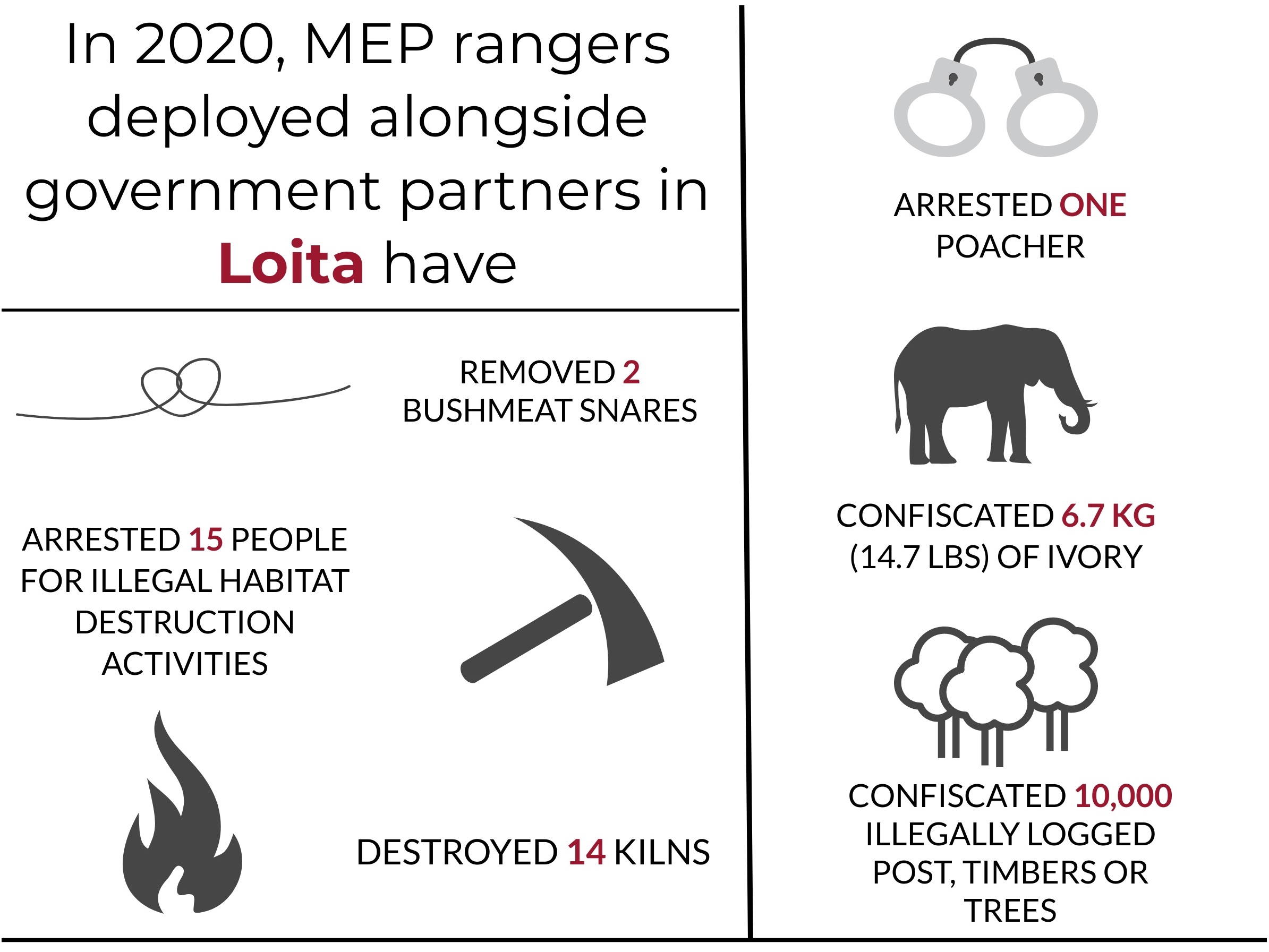
It’s not only MEP’s observations on the ground supporting a need for more protection, but also MEP’s Research Department collect data on habitat loss in key forest areas of the Mara. Using GLAD Deforestation alerts, we now can show the cumulative forest loss events measured in the Loita Forest and how they are increasing.
 MEP’s daily monitoring of collared elephants in the area and the movement data collected also supports a need for increased protection. MEP’s Director of Research and Conservation Dr. Jake Wall leads the detailed analysis of data collected from elephants collared by MEP since 2011. Combining this data with other relevant environmental data sets enables MEP to better understand the threats faced by elephants and the habitat upon which they depend. Our analysis of collared elephants in this area is not only protecting the elephants and local communities but also is being used to inform land use planning. Kenya Wildlife Service (KWS) and MEP conducted two collaring operations in the third quarter of 2020 to collect more data on elephant movements in Loita. In the south-eastern portion of the Mara ecosystem, the Sand River area that connects Loita to the Maasai Mara National Reserve is an important source of surface water for elephants and all wildlife and provides a critical corridor for them to move into the Loita Forest during times of drought. The Sand River is key for the surrounding communities who use it as a source of water and who farm tomatoes along its banks, which leads to conflict as the people and wildlife are competing for the same resource. Previous data has shown elephant connectivity from the Mara to the Loita Forest through this area, but our goal with an additional candidate is to collect more movement data to use to help in landscape planning to maintain connectivity along this southern route. Not only that, but the elephants will also provide an early warning to conflict for MEP rangers stationed nearby.
MEP’s daily monitoring of collared elephants in the area and the movement data collected also supports a need for increased protection. MEP’s Director of Research and Conservation Dr. Jake Wall leads the detailed analysis of data collected from elephants collared by MEP since 2011. Combining this data with other relevant environmental data sets enables MEP to better understand the threats faced by elephants and the habitat upon which they depend. Our analysis of collared elephants in this area is not only protecting the elephants and local communities but also is being used to inform land use planning. Kenya Wildlife Service (KWS) and MEP conducted two collaring operations in the third quarter of 2020 to collect more data on elephant movements in Loita. In the south-eastern portion of the Mara ecosystem, the Sand River area that connects Loita to the Maasai Mara National Reserve is an important source of surface water for elephants and all wildlife and provides a critical corridor for them to move into the Loita Forest during times of drought. The Sand River is key for the surrounding communities who use it as a source of water and who farm tomatoes along its banks, which leads to conflict as the people and wildlife are competing for the same resource. Previous data has shown elephant connectivity from the Mara to the Loita Forest through this area, but our goal with an additional candidate is to collect more movement data to use to help in landscape planning to maintain connectivity along this southern route. Not only that, but the elephants will also provide an early warning to conflict for MEP rangers stationed nearby.
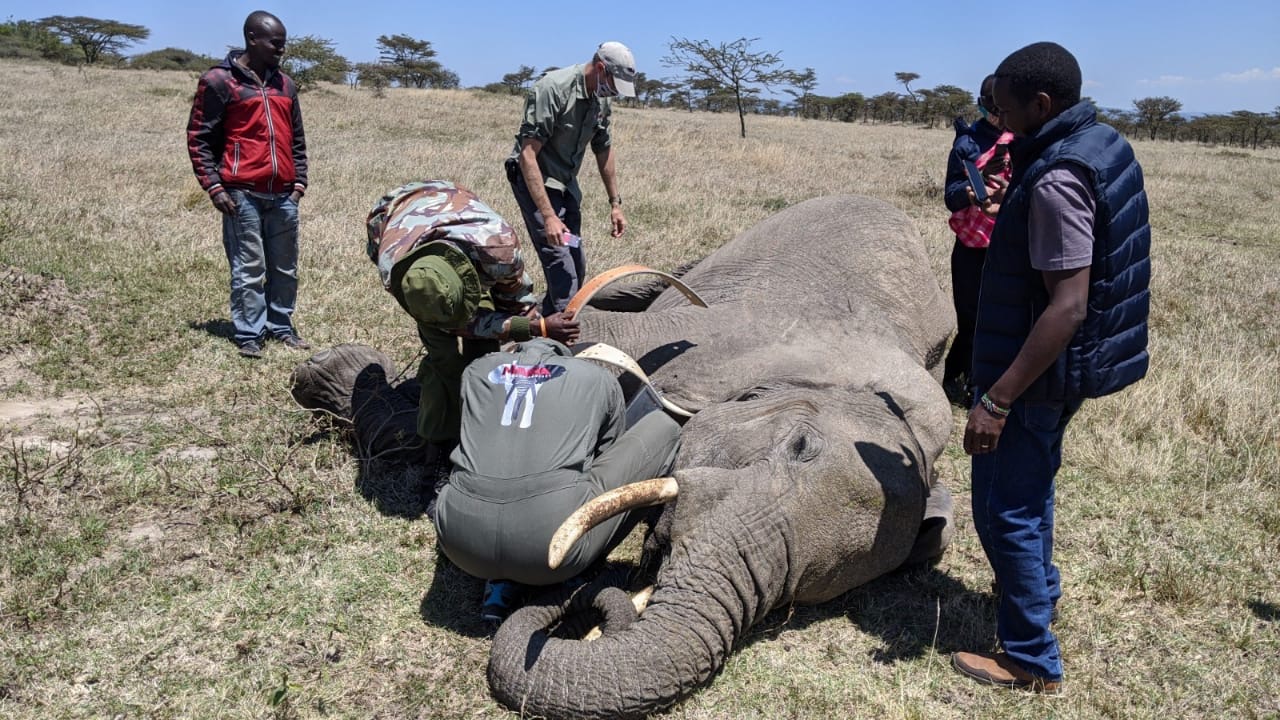
It’s not only elephants that are impacted, but all wildlife. In July 2020, one of the greatest spectacles on Earth, the great migration, came to the Maasai Mara. Over 3 million wildebeest, zebra, antelope and gazelles migrate from the Serengeti into the Mara ecosystem searching for greener pastures; however, infrastructure development such as fences is making their crossing even more arduous. The MEP Research Department is currently undertaking a fence line mapping exercise using three research field assistants on motorbikes who are charged with mapping the fences in areas of the Mara like Loita. We hope that the fence data we’re collecting across the conservancies and Loita Plains will help to explain the changes in movement patterns of both elephants and wildebeest ultimately allowing us to lobby for better protection of historical migratory routes.

It is clear, The Loita area needs more protection and we need to expand the MEP Method in the Loita Plains in conjunction with our partners immediately to mitigate conflict, reduce poaching and increase protection of habitat. That’s why in September 2020, MEP recruited 10 local community members from Loita who completed a 6-week training course on MEP’s campus.
And TODAY, #GivingTuesday, these rangers STARTED THEIR DEPLOYMENT in the Loita Plains.
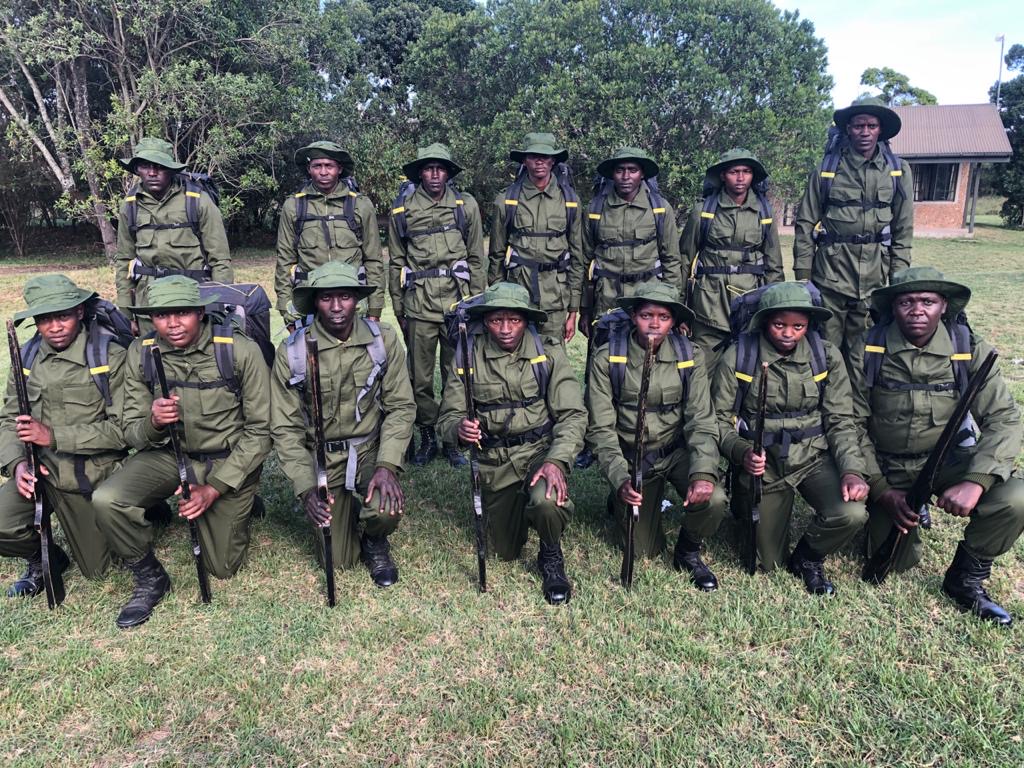
MEP works closely with these local communities to protect Kenya’s iconic elephants and the habitat upon which they depend, which is why recruiting local men and women is an effective approach to increasing the protection of an area. We also know that a partnership approach like the one Kenya Wildlife Service and MEP have taken works and having boots on the ground in an increasingly threatened area is key to increasing security. While, this team is a necessary expense for MEP to incur, your support in this endeavor to expand our ranger presence is vital to ensure MEP can expand our area of operations and our net of protection.
HERE’S HOW YOU CAN HELP

Your support of this ranger unit for one year will ensure these 10 men and women are able to be successful in their role protecting Kenya’s wildlife, communities and habitat.
The 10 new MEP rangers are responsible for responding to conflict and collecting information on all conflict incidents to analyze in MEP’s EarthRanger system. The information gathered when combined with the elephant movements from our collared elephants will be used to inform spatial planning to protect elephant habitat and test and modify different conflict mitigation techniques with the community. In addition, they will be tasked with increasing security in the area for wildlife by reducing poaching and illegal habitat destruction activities. Achieving these results will lead to a more peaceful co-existence between the local community and elephants. We will measure success through the reduction in the number of elephant deaths from poaching or human-elephant conflict, illegal activities, the number of arrests made and an effective use of mitigation techniques.
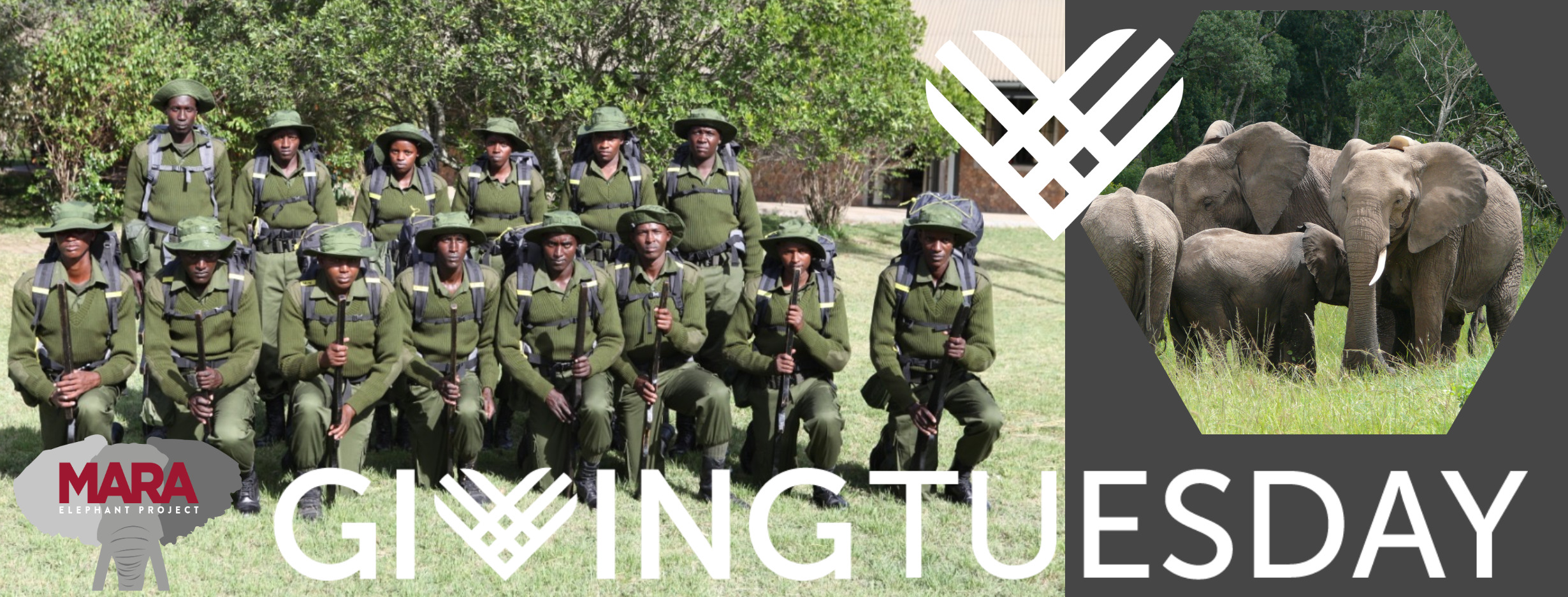
Mara Elephant Project is pursuing several avenues of funding for the total cost of this new ranger team and though we are prepared to incur these costs because of the critical nature of this need, we ask that you partner with us to increase protection for wildlife, communities and habitat.
